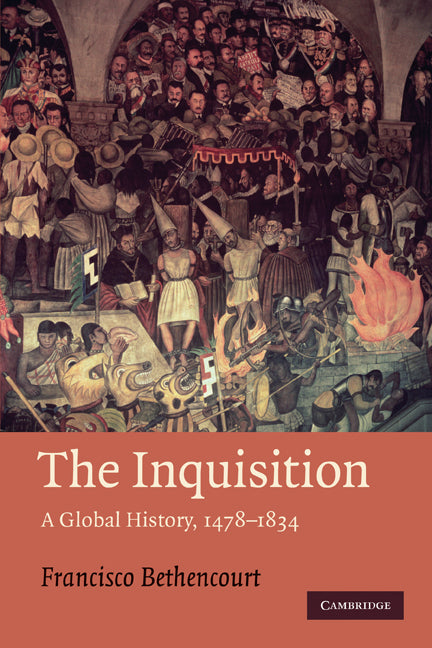Freshly Printed - allow 4 days lead
Couldn't load pickup availability
The Inquisition
A Global History 1478–1834
This global comparative study reveals the Inquisition's crucial role in shaping the Catholic Church, Southern European and colonial Iberian societies.
Francisco Bethencourt (Author), Jean Birrell (Translated by)
9780521748230, Cambridge University Press
Paperback, published 15 October 2009
504 pages, 46 b/w illus. 3 maps 11 tables
22.8 x 15 x 2.2 cm, 0.79 kg
'Bethencourt's scope is undeniably broad: he has worked in archives in Spain, Portugal and Italy, and has an enviable command of the vast secondary literature in several languages … there is also much that is valuable and persuasive in [his] analysis of the institutional culture of the Inquisition(s).' Peter Marshall, The Times Literary Supplement
The Inquisition was the most powerful disciplinary institution in the early modern world, responsible for 300,000 trials and over 1.5 million denunciations. How did it root itself in different social and ethnic environments? Why did it last for three centuries? What cultural, social and political changes led to its abolition? In this first global comparative study, Francisco Bethencourt examines the Inquisition's activities in Spain, Italy, Portugal and overseas Iberian colonies. He demonstrates that the Inquisition played a crucial role in the Catholic Reformation, imposing its own members in papal elections, reshaping ecclesiastical hierarchy, defining orthodoxy, controlling information and knowledge, influencing politics and framing daily life. He challenges both traditionalist and revisionist perceptions of the tribunal. Bethencourt shows the Inquisition as an ever evolving body, eager to enlarge jurisdiction and obtain political support to implement its system of values, but also vulnerable to manipulation by rulers, cardinals, and local social elites.
Introduction
1. Foundation
2. Organisation
3. Presentation
4. Appointments
5. The edicts
6. The visits
7. The auto-da-fé
8. Status
9. Representations
10. Abolition
Conclusion.
Subject Areas: Church history [HRCC2], Religion & beliefs [HR], Early modern history: c 1450/1500 to c 1700 [HBLH], European history [HBJD]


